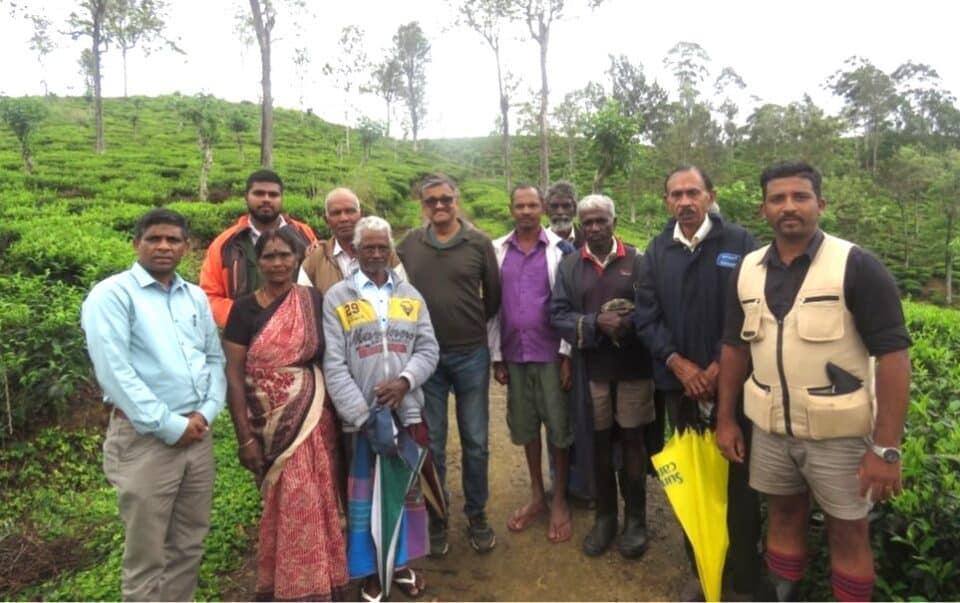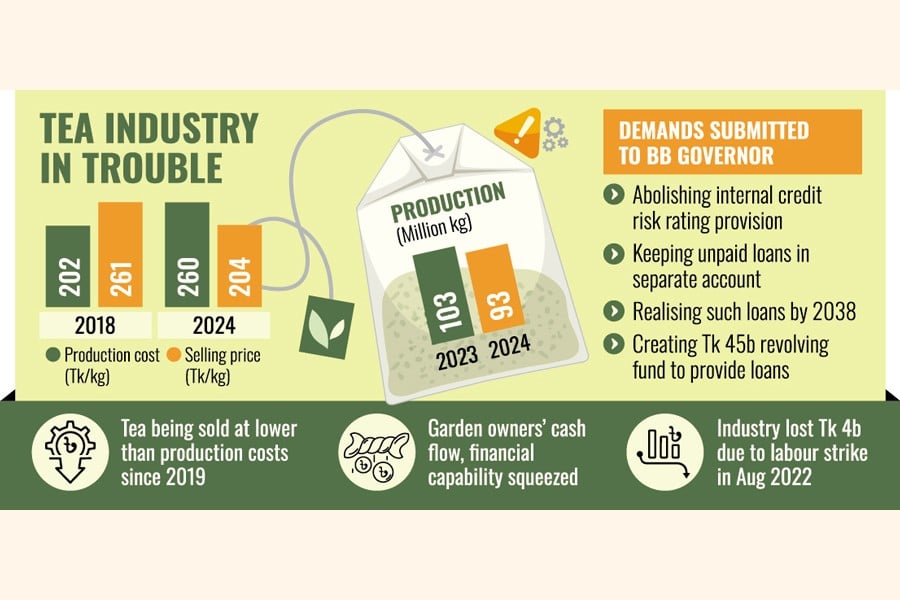The Headlines
THIRST’s September 2025 News Update highlights both deepening unrest and promising adaptation across the global tea sector. In India, these appear to be leading increasingly to the closures of estates. In these cases, there’s a familiar pattern of wages and other benefits being severely delayed, leading to industrial unrest (sometimes tipping into violence), leading eventually to closure. Workers say we won’t work without pay. Managers say we won’t pay without work. They are locked in a vicious cycle that needs to be broken from the outside, starting with the root causes for the non-payment of wages. Buyers and policy makers need to acknowledge their own responsibility in the situation and examine what changes they need to make to break the cycle.
Although currently concentrated in India, there is a risk that the pattern could spread to other tea producing regions. The seasonal shutdown of tea factories in Malawi was more severe than usual last month, signalling growing challenges for the industry there too. Meanwhile, a clear thread of industrial disputes runs through Bangladesh, Kenya and Sri Lanka with wages, bonuses and working conditions dominating headlines.
The challenges faced by tea plantations is also evident in the persistent health and safety failures (from sanitation crises to fatal accidents) reported last month, underscoring the inadequacy of basic services. Urgent steps should be taken to improve health services for tea communities, and to ensure that never again will pregnant mother and her unborn child die due to the lack of an ambulance, as happened in Assam last month.
Alongside these crises, there are also positive signs of resilience and innovation. Farmers in Rwanda and Kenya are taking steps to build climate resilience, improve household incomes and invest in education. Kenya is also leading a drive to expand value addition, while India and Sri Lanka are exploring artificial intelligence in tea processing.
For THIRST, these developments highlight both the urgency of addressing deep-rooted problems and the potential for systemic reform. Sustainable tea will only be possible if economic, social and environmental challenges are tackled with workers and small farmers placed at the centre of change – and with buyers, policy-makers and other stakeholders standing up and playing their part.
Closures and lockouts signal deeper crisis in tea estates
Closures across tea regions this month highlight the sector’s fragility. In Kerala, India, Haileyburia Tea Estates shut down in August after months of unpaid wages, leaving hundreds of workers without income before unions forced a reopening deal in September (The Hindu, 10/08/2025; 14/08/2025; 01/09/2025). Nearby, the POABS Group faces protests over withheld salaries and claims that low worker turnout is making production unviable (The Hindu, 21/08/2025). The Peerumade hills, marking 150 years of tea cultivation, have seen the number of estates fall from 40 in the 1970s to just 28 today (The Hindu, 19/08/2025).
In West Bengal, Bamandanga-Tondu estate closed after a wage dispute turned violent, while Banarhat Ambari’s sudden July shutdown left 2,000 jobless (Telegraph India, 30/08/2025; ETV Bharat, 31/08/2025). In Malawi, the suspension of Lujeri Tea Estates has affected 10,000 workers and farmers. (Malawi 24, 02/08/2025). THIRST’s enquiries with local and international sources confirm that partial seasonal slowdowns are normal – but this year all Lujeri’s factories shut-down for the season, signalling increasing challenges.
The scale of this year’s closures, especially in India, points to deeper structural weaknesses in the industry. Breaking the cycle of unpaid wages and estate closures remains a pressing challenge for the future of sustainable tea.
Price collapse and worker unrest expose structural fault lines
The tea sector is placed under further strain as price volatility feeds into wage disputes. In India, green leaf prices have crashed to Rs 11–14 per kg in Assam and West Bengal (Economic Times, 21/08/2025; Assam Tribune, 24/08/2025), leaving 24 million small farmers in crisis. Cheaper imports from Kenya and Nepal and uncertainty over US tariffs add to the pressure, prompting calls for a Minimum Sustainable Price tied to production costs (Economic Times, 11/08/2025). Prices have also nearly halved in India’s Arunachal Pradesh(The Arunachal Times, 14/08/2025), while growers in northern Bangladesh report modest recovery thanks to better rates and improved quality control (Daily Star, 25/08/2025).
Falling prices are intensifying wage disputes. Over 300,000 workers in India’s North Bengal await Puja bonus negotiations with unions demanding 20% against resistance from struggling estates (The Statesman, 09/08/2025; Telegraph India, 29/08/2025). Some companies have agreed to pay in full, but disputes remain, alongside provident fund arrears of nearly Rs 10 crore in four Bengal gardens (Millennium Post, 01/08/2025). In Darjeeling, workers secured a 20% annual bonus after state intervention (Telegraph India, 19/08/2025; 23/08/2025). In Assam, the Bharatiya Chah Mazdoor Sangha has called statewide protests over poor conditions and unpaid benefits (India Today NE, 17/08/2025). Governments are responding unevenly. Assam’s Chief Minister announced a wage hike to Rs 250 a day from 1 October, alongside new schools, vocational centres, housing support and job reservations for the tea community (Hans India, 11/08/2025), while in Bangladesh 60,000 workers have received allowances and housing support (BSS News, 10/08/2025).
Health and safety failures put tea communities at risk
With prices crashing and plantations struggling to pay wages, it is perhaps not surprising that recent reports are highlighting stark health and safety challenges faced by tea workers across South Asia. In India’s Assam, five residents of Chabua Tea Garden died following a suspected diarrhoea outbreak, prompting urgent calls for sanitation improvements. While officials later suggested not all deaths were diarrhoea-related, they confirmed a rise in gastro-related illnesses and have since launched awareness drives and door-to-door interventions (Borok Times, 16/08/2025; India Today NE, 16/08/2025).
Still in India, the lack of adequate healthcare infrastructure was tragically highlighted at Deamoolie Tea Estate in Assam, where a pregnant woman, Bharati Tanti, died after being unable to access an ambulance. Both the state-provided and company-provided vehicles were unavailable, forcing her family to arrange private transport too late. Her death, alongside that of her stillborn child, triggered protests by fellow workers who pointed to repeated failures in maternity care at the estate (Assam Tribune, 08/07/2025).
Elsewhere, unsafe working and transport conditions continue to claim lives. Four women were killed in a landslide while collecting soil at Lakhaichara Tea Garden in Bangladesh (Daily Sun, 19/08/2025) and three workers died when a pick-up van overturned in India’s West Bengal (News Bytes, 25/08/2025).
Building climate resilience and strengthening tea communities
In more positive new, across Africa, tea farmers are taking important steps to adapt to climate change and secure stronger livelihoods. In Rwanda, a farmer-managed weather station has boosted forecast accuracy from around 60% to 85%, helping growers plan more effectively and safeguard their harvests. Data from the station, now integrated into Meteo Rwanda’s national system, benefits tea growers and the wider farming community (All Africa, 31/07/2025).
In Kenya, more than 3,800 smallholder farmers in Embu and Kirinyaga counties have completed six-month training programmes on climate-smart agriculture, crop diversification and land management. Delivered through partnerships between the Kenya Tea Development Agency (KTDA) Foundation, Rainforest Alliance and local sustainability programmes, the initiatives encourage farmers to adopt high-yielding tea varieties, invest in alternative crops and strengthen household resilience. Graduates highlighted the value of learning to plan family finances together and explore new income streams, marking a shift from reliance on tea alone (Kilimo News, 12/08/2025; Kenya News, 16/08/2025; The Star, 22/08/2025).
The KTDA Foundation is also expanding its education sponsorships to university level, aiming to support bright but financially challenged students from tea-growing families and nurture the next generation of innovators and leaders (Standard Media, 21/08/2025).
Tea producers push forward on value addition and technology
Across the tea sector, governments and producers are putting greater emphasis on value addition and technology as pathways to higher incomes and stronger markets. In Kenya, the government has set a bold target raising the share of value-added exports from less than 5% today to 50% by 2027.
Officials and industry leaders argue that practices such as packaging, branding, blending and producing flavoured or instant teas could increase farmer earnings by up to 40%, while also creating jobs along the value chain (African Business, 06/08/2025; Farmers View Africa, 25/08/2025). These reforms build on the Tea Act 2020 with the Tea Board of Kenya now licensing 34 orthodox tea factories and opening a dedicated line for orthodox teas at the Mombasa Tea Auction (Standard Media, 28/08/2025).
In India, tea research groups are trialling artificial intelligence to improve tea processing and farm management, a move experts say could transform efficiency and quality. The move reflects a wider drive to modernise production and stay competitive in global markets. Sri Lanka is being urged to adopt similar openness to testing and regulation to avoid falling behind in technology-driven agriculture (The Morning, 27/08/2025).
This News Update was written by Sarah Amankwah
Share this update
Sign up for our monthly newsletter to stay in the know about human rights in the tea sector
Each issue of our newsletter includes:
A summary of the latest tea sector news
Upcoming THIRST events
THIRST news and updates
New reports and resources from our Knowledge Hub




